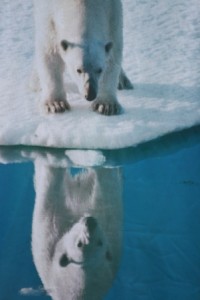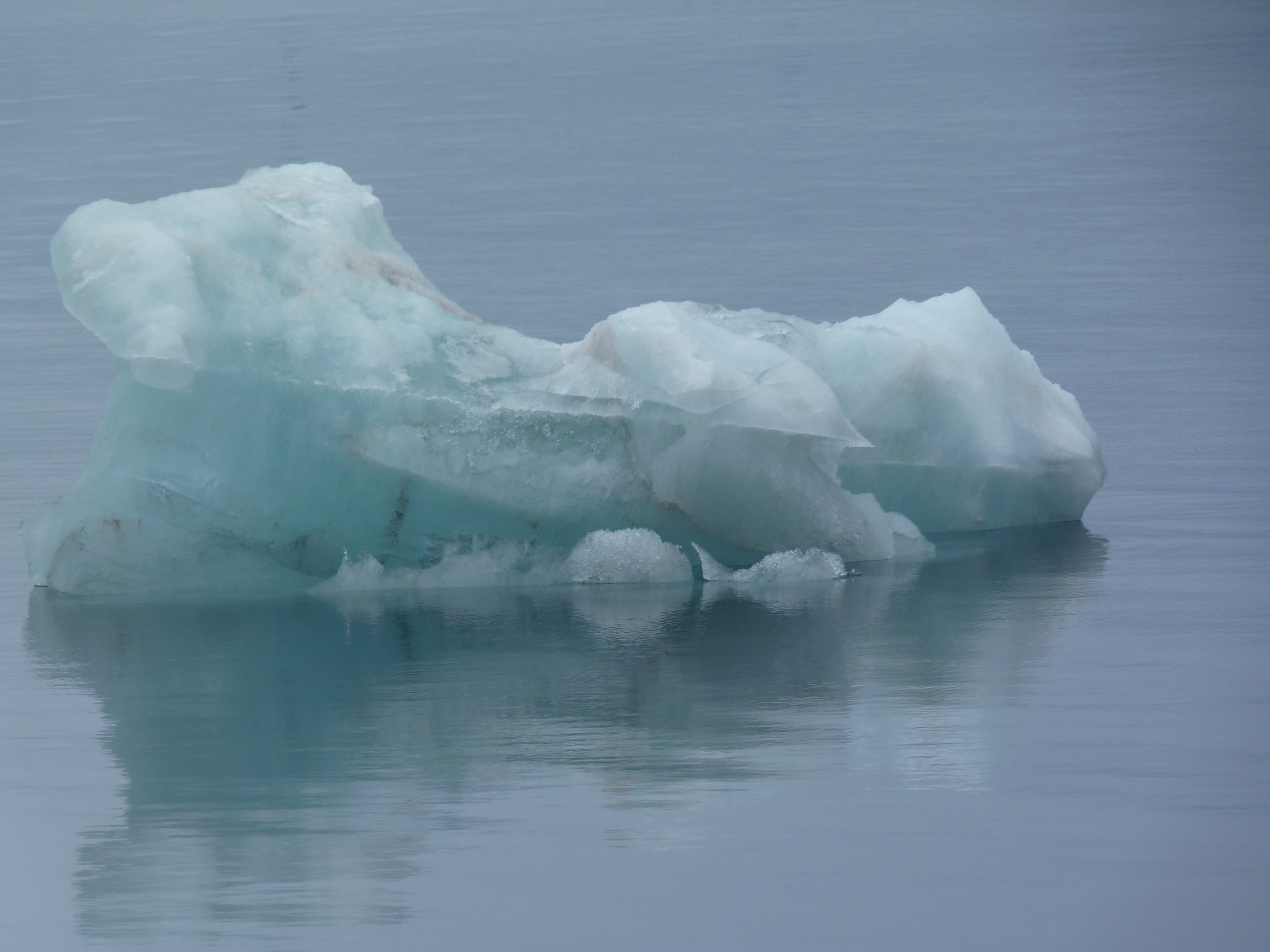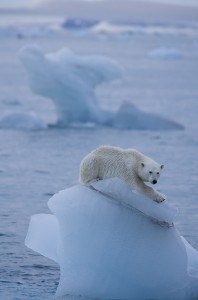Search Results for Tag: polar bears
Polar bear update: “wildlife” or politics?
The Arctic Institute publishes a weekly newsletter “The Arctic this Week” and, not surprisingly, our white furry Arctic residents feature prominently again this time. As the authors, Tom Fries and Kevin Casey point out, they have slipped from the “wildlife” category into the “politics” category, with the debate going on at the CITES meeting. The newsletter went out before the start of the meeting, but it has links to some very interesting background articles on the issue. I recommend a look at their website.
Some ice blog followers drew my attention to links in yesterday’s post which were not working properly. Apologies for any technical hitches. Here are the polar bear links, mine and some of those Tom and Kevin drew my attention to.
Statement by the IUCN polar bear specialists’ group
Polar Bear Politics in the Economist
WWF Tromsö Polar Bear Workshop
Is enough being done to protect polar bears? (International Polar Foundation)
Polar bears to retain “threatened” listing – in Alaska Dispatch
USA, Europe and Russia team up to help bears – in New York Times
Suggestions for further reading welcome!
WWF: human-bear conflict increasing
Hungry polar bears under pressure from climate change are increasingly coming into conflict with people in some regions, said experts at a WWF Workshop in Tromso, Norway, this week. The meeting called on governments to work together to finance and implement ways to keep both bears and people safe.
30 experts from different Arctic regions agreed the polar bear range states – Canada, Norway, Greenland, Russia and the United States – should cooperate to fund, monitor and share conflict reduction measures.
WWF polar bear lead Geoff York said “As sea ice habitat continues to decline, more bears will spend longer periods of time onshore and human activities are also projected to increase in the area, setting the stage for trouble in the years ahead”.
There is a “Range States polar bear conflict working group”. It was also present at the workshop and said it will be presenting a new data tracking system and draft conflict plan at the next meeting of the “Polar Bear Range States” meeting which will be held in Moscow in the autumn.
WWF has designated 2013 as the Year of the Polar Bear and is calling on the countries involved to make firm commitments at the meeting.
So how do you reduce conflict, when bears are hungry and humans in close proximity to areas where they hunt for food? The workshop participants shared ideas including polar bear patrols to help keep bears away from communities, safe storage and disposal of food and rubbish, education on safety measures, deterrents from bear spray to fences and dealing with “problem bears”.
The Ice Blog recently drew attention to a successful project in Canada, which has reduced conflict between bears and locals.
Polar bears are also on the agenda at the CITES meeting in Bangkok at the moment, running until March 14th. The USA is trying to get the bear switched to Appendix I of the convention, which would ban trade in all but “exceptional” circumstances.
This is a different aspect of “polar-bear conflict” and difficult because of traditional hunting practices in some areas. The Economist has an interesting summary in Polar Bear Politics.
WWF Canada helps reduce polar-bear kills
There are estimated to be between 20 and 25 thousand polar bears left in the world. Climate change is the main threat to their survival these days. Hunting is strictly regulated, with quotas for the number allowed to be hunted as part of indigenous Arctic people’s heritage. But what happens when hungry bears, affected by the loss of sea ice, encroach on human territory? Not a good combination. WWF Canada has been involved in a project to set up electric fences – some of them solar powered – to keep the white giants out and reduce the number of bears killed in self-defense – with highly positive results so far. For the first time in at least three years, no bears were killed in defense of life or property in the hamlet of Arviat, in Nunavut in 2012 thanks to a “polar bear conflict reduction” project. The community , in the western Hudson Bay area, had reported increasing visits by polar bears in town in recent years. One reason is thought to be the loss of sea ice through climate change. WWF Canada has helped the locals fund a monitor to patrol the area at night from October to December, when bears are out and about in the Nunavut region. The monitor scares the bears with spotlights and noise. They have also installed electric fences around some of the dog-team pens. 2013 is the WWF’s “Year of the Polar Bear”. The organisation is also helping to fund monitoring programmes to keep track of the number of bears.
Greenpeace criticizes draft Arctic oil spill response agreement

The symbol of an intact Arctic: A polar bear puts in an appearance on a poster at a Greenpeace “Save the Arctic” stand in Germany.
The Arctic Council environment ministers will be meeting in Jukkasjärvi in Sweden over the next few days. One of the items on the agenda is a long-awaited agreement on dealing with oil accidents in the Arctic. A copy of the document has been leaked, and Greenpeace says it is “vague and inadequate”. “Marine Oil Pollution Preparedness and Response in the Arctic” is the title of the paper, set to be adopted by the Council’s foreign ministers at their meeting in May. An oil spill in the Arctic would be very hard to tackle for various reasons, including remoteness, cold, ice, darkness and the fact that oil takes longer to break up in cold conditions. Remember the Exxon Valdez? If you are young enough not to, it was a tanker that went down in Prince William Sound in 1989, with devastating effects on the environment.. I visited the spot a couple of years ago, and there are still clumps of oil under stones on the beaches. And of course Shell is having its own problems with Arctic drilling at the moment.
Greenpeace is running an international campaign against oil drilling in the Arctic. Ben Ayliffe, head of the campaign, told the media: “This draft agreement does not inspire confidence in the ability of the Arctic Council to protect this fragile region when the worst happens. It’s incredibly vague, it fails to hold oil companies liable for the impact of their mistakes, and there is nothing here that ensures adequate capacity to deal with a spill in these nations”
I have been talking to a lot of experts on this over the last few years and most of them are convinced that a spill would happen sooner or later and would be extremely difficult to deal with. The risks to the fragile Arctic ecosystem would be enormous.
“Svalbard bears on the move”
I found the latest online edition of WWF Arctic‘s newsletter The Arc in my in-box today. For a Friday afternoon or weekend pastime, I would recommend a look. I was particularly interested in the item about polar bears on Svalbard, following the sea ice or locating a dead whale. Having been on the Arctic island a few times it holds a special interest for me. And the chance to track polar bears moving around is absolutely fascinating. The bear tracker site does just that. There’s also a video of how researchers on the ground work with the bears. Can you imagine putting your hand between the jaws of a giant white bear? 😉
























Feedback